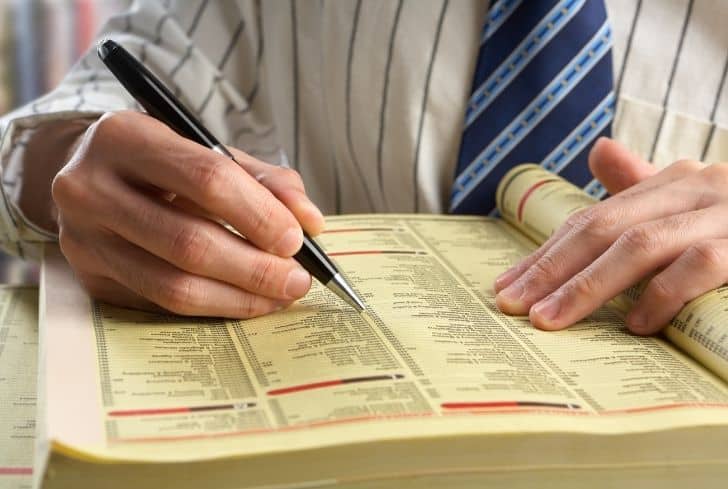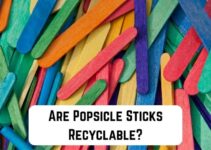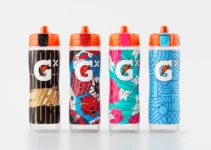Before the advent of mobile phones, the internet, and all the advanced technologies we enjoy today, how did ancient people survive? It is almost impossible to imagine a life without mobile phones and the internet. But the ancient people lived without all these gadgets and technologies.
How were businesses able to advertise their goods and services if there was no internet? And how were customers able to identify the businesses that offered the products and services they needed if they had nothing they could use to search for it?
Well, they had their technology and it worked for them. They used yellow pages. To many people living in the 21st Century, yellow pages sound weird, and only a few people would have seen it. Funny enough, yellow pages were used in the mid-19th century.
Yellow pages are like a directory, and it contains a list of businesses and organizations arranged according to the services or goods they offered. The directory was printed on yellow paper, hence the name. With technology making yellow pages irrelevant, there are concerns about the impact they have on the environment.
Are Yellow Pages Recyclable?
We are in an era of smartphones, the internet, and artificial intelligence, we have no use for a phone directory. However, before these technologies became the norm, yellow pages were still in use and the issue of how to dispose of them is a major concern to anyone concerned with the state of the environment.
Yes, yellow pages are one hundred percent recyclable. Yellow pages are made of paper making them recyclable. The process of producing yellow pages is very complex. A combination of filler, recycled fiber, and SFI certified residual sawmill chips are the major products used in manufacturing yellow pages.
Nevertheless, these products are all organic, making yellow pages easy to recycle. However, there may be some issues during recycling. One of the things that can make recycling yellow pages difficult is synthetic fibers. When yellow pages are dumped in the recycling centers with a plastic bag or magnets attached to them, recycling becomes a problem.
Paper is fully recyclable, so when yellow pages are recycled, they are used to make new products. But when the yellow pages to be recycled contain contaminants like grease, oil, dirt, and other waste, recycling it can be difficult because to get rid of this waste, the yellow pages must go through some chemical process.
If any form of paper has to go through chemical processes to eliminate contaminants, the recycling value of the paper is reduced. Many people are not aware of this, so when they dispose of paper, they add other waste products. This is the major reason paper is getting difficult to recycle.
To recycle yellow pages, the pages must first be collected and sorted out. This first step is to ensure there are no impurities that can delay and alter the recycling process. After the yellow pages have been sorted out, the major recycling process begins. This process is similar to the process of recycling other papers.
If you have yellow pages that you hope to recycle, you should try your best to avoid mixing them with other waste products. The best thing to do is to isolate the yellow pages and when you want to recycle them, you take them to the recycling center.
Can You Put Yellow Pages in the Recycle Bin?
If you have lots of yellow pages in your home, a major concern you will have is how you can dispose of them. If you are an environmentally conscious person, you would be thinking of how to properly dispose of them in a way that is not harmful to the environment.
You might wonder if it is safe to put yellow pages in the recycling bin. Yes, you can put yellow pages in the recycle bin, they are made of paper so they can be recycled easily. Nevertheless, you still need to check the local guidelines for recycling so you can know how to prep the yellow pages properly before dumping them in the recycle bin.
Most paper products we use today are manufactured from recycled paper. If these papers were not disposed of properly, there would be problems recycling them. And if recycling is almost impossible to achieve, more trees would be cut down to produce more paper and we are causing a disbalance in the ecosystem. Soon, there will be little trees to use to produce papers.
So, for us to avoid this from happening, we must properly dispose of all kinds of paper, including yellow pages. If you want to put them in the recycle bin, ensure there are no toxins and contaminants with them, otherwise they will be soiled and difficult to recycle in the recycling center.
Keep plastic, magnets, food waste, grease, and other contaminating materials away from yellow pages when you dispose of them in the recycle bin. We should do everything possible to protect our environment. By reducing our impact on the environment, we would enjoy our stay on the planet.
Most times, when yellow pages have been soiled with food waste and other toxic materials, it is dumped in the landfill instead of being recycled. This is one of the ways we are damaging the environment. Toxic waste does not add any value to the environment, rather it causes more damage to it.
Are Yellow Pages Still Printed?
In the days of old, before the world became as advanced as it is now, everything was done manually. There was no radio or television, all they had was the yellow pages. A directory was delivered to anybody that owned a telephone. The directory contained the addresses and mobile numbers of different businesses for customers to find them.
Now, we have the technology to our advantage, we can find any product, service, or business quickly. But, are people still using yellow pages in this advanced age? Yes, yellow pages were still being printed up until January 2019. After five decades of functioning, yellow pages are not printed anymore.
Social media platforms like Facebook, Instagram, Twitter, as well as search engines, like Google have decreased the demand for yellow pages. Nobody wants to have directories of businesses delivered to them regularly when they can check the internet for any service or product they need.
The CEO of Yell has decided to make yellow pages an online directory, therefore putting an end to the printing and delivery of yellow pages to peoples’ homes. An inventive way to keep the company functional, there is now an online inventory that works the way the physical directory works but is more efficient and reliable.
He said that the directory has caused a lot of environmental damages over the years and one of the reasons the company would stop printing yellow pages is to reduce environmental damage. Yellow pages partnered with giant search engines, like Google, changing their strategy and getting bigger.
Are Yellow Pages Still Effective?
Many people have wondered if yellow pages are still effective now that we have the internet and social media that make it easy to find the contact details of any business and organization. Do people still use yellow pages? Who are the people using it? These are some of the questions people ask when they hear about yellow pages.
According to the Yellow Pages, over 80 million people visit their website and use their mobile applications monthly. And they claim over twenty million businesses are listed on their online directory. The company claims they have over a billion dollars in digital revenue. In 2014, Yellow Pages said they generated more revenue digitally than from printing for the first time.
With these, yellow pages remain relevant in our digital world. However, yellow pages are only relevant digitally, the era of printing directories is over and nobody is receiving them anymore.
Let us look at some of the benefits of the yellow pages.
Free Advertisement
One of the benefits of Yellow Pages is that you do not have to pay a dime to have your business listed on their directory. Yellow Pages offers a free listing to any business or organization willing to increase its brand awareness. Advertising with Yellow Pages is an effective and inexpensive way to generate leads and increase brand awareness.
Increased Sales And Engagement
Yellow Pages gives any business or organization listed on its directory exposure and increases their brand awareness. Even if sales are not generated immediately, your business has been identified by potential customers. You can rest assured that your business has been registered in the minds of your potential customers.
Better Audience Targeting
The good thing about Yellow Pages is that you can target your audience geographically. So, if your audiences are in a particular location, your business can be listed in the directory for that location. People in that location can easily find your business when they search. An added advantage to any business or organization.
What Can I Do With Unwanted Yellow Pages?
Since Yellow pages stopped printing and delivering directories, many people who previously received directories are now stuck with a basement filled with yellow pages and do not know how to dispose of them.
They are too much to be dumped in the recycle bin and no one wants to receive them as gifts. So how then can you do away with unwanted yellow pages?
1. Secret Safe
You can use unwanted yellow pages to create a secret safe just like it is done in the movies. You can use one of the yellow pages to create a hidden safe to store and hide things from people. No one would think of checking an old yellow page for valuables. If you want to hide things from your children, you can use a yellow page, they will never suspect anything.
2. Start a Fire
In the chilly winter months, a fireplace is essential. Papers are a great way to start a fire, all the unwanted yellow pages you have can be used. The papers in the yellow pages are not useful since the directories can be accessed online. So, you can use the papers for a fire. You must roll the pages up tightly like logs of wood or you can ball them up before using them as fire starters.
3. Mulch
You can use unwanted yellow pages as mulch. The papers are biodegradable so they are not harmful to the soil. To do this, tear the pages out, make each about 6 to 8 pages thick, lay them down in the flowerbed under a layer of normal mulch.
The pages act as a shield and prevent grasses from sprouting in the flowerbed. If the pages contain ink, you should use it for your decorative gardens instead of a vegetable garden.
Conclusion
Recycling waste and unwanted items are one of the best things we can do to save our environment. We should all endeavor to properly dispose of unwanted items, either by recycling or upcycling them. Either way, the environment is protected and we also benefit.
You are reading this blog post because you are looking for a safe way to dispose of old and unwanted yellow pages you have accumulated over the years. There are a couple of tips available for you. Please, read up, and let us save our environment.






